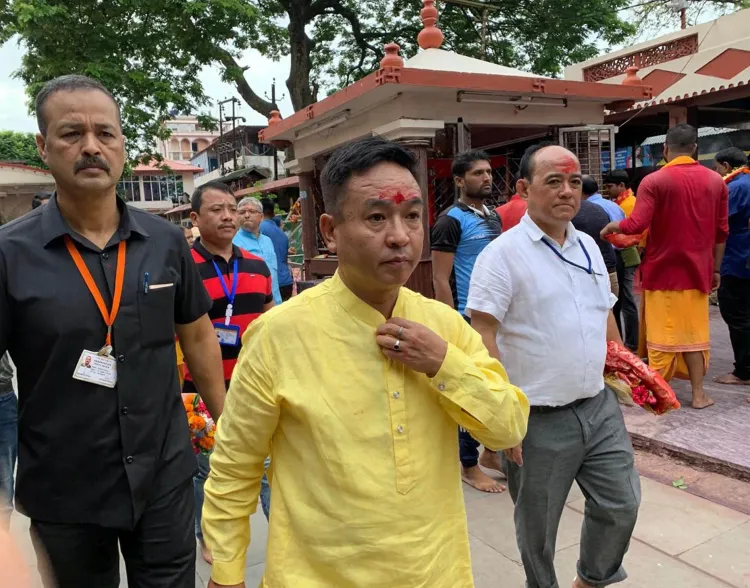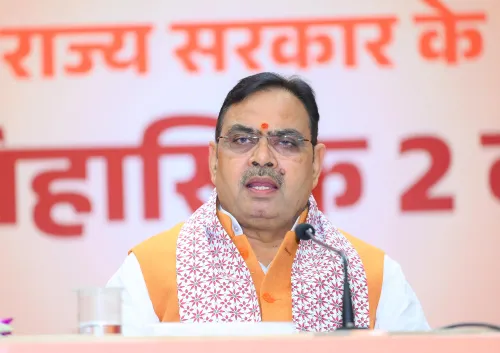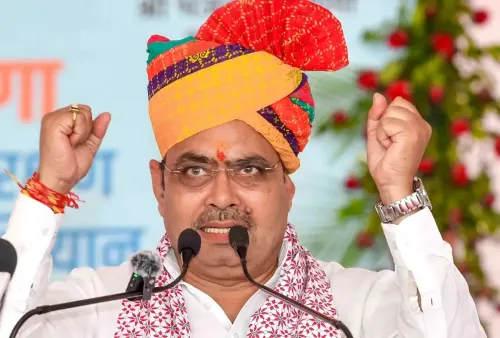How is Sikkim CM Celebrating the Saga Dewa Festival?

Synopsis
Key Takeaways
- Saga Dawa is a significant festival in the Buddhist calendar.
- It commemorates the birth, enlightenment, and passing of Lord Buddha.
- Values of compassion and non-violence are central to the celebration.
- CM Tamang encourages unity among citizens.
- Acts of kindness during this month are believed to be magnified.
Guwahati, June 11 (NationPress) Sikkim Chief Minister Prem Singh Tamang conveyed heartfelt greetings on Wednesday to the citizens of the state, particularly the Buddhist community, in honor of Saga Dawa, one of the most sacred festivals in the Buddhist calendar.
In his message celebrating this spiritually significant occasion, which marks the enlightenment and Mahaparinirvana (passing) of Lord Buddha, CM Tamang reflected on the lasting significance of the Buddha’s teachings.
“Saga Dawa is a profound reminder of Lord Buddha’s everlasting messages of non-violence, compassion, brotherhood, and harmony that continue to motivate humanity,” he stated.
Emphasizing the contemporary relevance of these values, the chief minister encouraged citizens to adopt peace and empathy in their everyday lives.
“May the brilliance of his wisdom eliminate the darkness of hatred and intolerance, paving the way for an era filled with peace, fulfillment, and spiritual enlightenment,” he remarked, underscoring the deeper spiritual essence of this occasion.
Tamang also took this opportunity to advocate for enhanced social unity. He urged the people of Sikkim to transcend the barriers of caste, creed, gender, and religion, and to reaffirm their commitment to the principles of Dharma, truth, and righteousness.
His message highlighted the necessity to cultivate unity in diversity, resonating with the fundamental values of the Buddhist philosophy celebrated during Saga Dawa.
Saga Dawa is observed with profound reverence throughout the Himalayan region and other Buddhist areas. Celebrated on the full moon of the fourth month in the Tibetan lunar calendar—usually in May or June—this festival honors the birth, enlightenment, and passing of Lord Buddha Shakyamuni.
These three crucial events in the Buddha's life are seen as the foundation of the Buddhist path.
Known as the “month of merits,” Saga Dawa encourages practitioners to enhance their spiritual practice through acts of compassion, generosity, and mindfulness.
Monasteries and temples are filled with devotees offering butter lamps, alms, and incense, while the air resonates with the chanting of sacred mantras.
Many individuals observe the eight Mahayana precepts for a day, refraining from negative actions and focusing on nurturing inner virtues. It is believed that any positive action during this period is magnified, prompting Buddhists to engage in more virtuous behavior throughout the month.
The festival showcases unique customs across various regions. In Tibet, a stunning ritual involves the ceremonial replacement of a massive prayer flag pole at Mount Kailash, regarded as one of the holiest places in Buddhism.
Processions featuring monks carrying sacred texts through the streets, along with public prayers and offerings, bring a festive yet solemn atmosphere to the occasion. It is a time for rituals as well as collective contemplation and renewal of one’s spiritual commitments.










